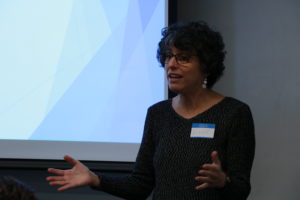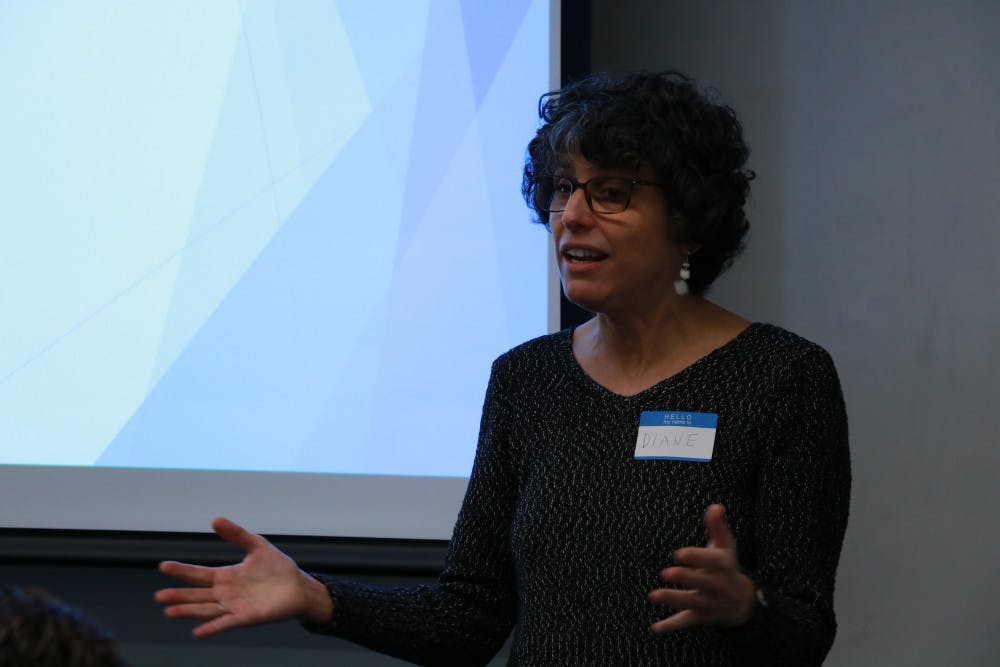By Len La Rocca
Distribution Manager
In an effort to minimize microaggressions on campus, faculty and some students pooled into the Brower Student Center Room 222 at noon on March 12 for the third Diversity Education Series event titled, “Small Things Matter.”
The goal of the Diversity Education Series is to inform staff on how to handle issues with a cultural awareness of others and to avoid offense in the vastly diverse educational landscape. The first event was about how social-cultural identities such as gender, race and sexual orientation affect people’s behavior, perspectives, assumptions and communication, while the second one dealt with bias and different ways to combat it.

Spearheaded by Diane Goodman, a diversity and equity consultant with 35 years of experience in her field, the presentation highlighted the effects of microaggressions and the subtle oppression of others due to underlying bias.
The audience was fully engaged in the presentation and held a group discussion about possible situations in which they have heard of or experienced microaggression.
A microaggression is a subtle comment that carries a marginalizing assumption of someone, thus hurting the person hearing it and giving them assumed characteristics, according to Goodman. She began by acknowledging that most people are capable of using microaggressions, yet the behavior is often disguised behind seemingly good intentions.
“A lot of times, microaggressions come out as a compliment,” Goodman said. “The reason these statements come across as offensive is because of underlying bias.”
According to Goodman, people usually do not use microaggressions intentionally. It usually happens when a person is trying to make conversation with someone, but reverts to referring to certain stereotypes instead of asking about the person’s interests. These are more prevalent when an individual pretends to be unaware of another’s identity instead of acknowledging its existence.
“Often, people pretend that they don’t see color or that differences don’t matter as a way to say, ‘oh well if I don’t see color, then I can’t be biased in any way,’” Goodman said. “But the problem is that we do notice differences. If we are to really have authentic relationships and to be able to create equitable, inclusive environments, then we need to recognize that we’re not all the same and we’re not all having the same experiences.”
Comments such as “you’re so well-spoken” or “wow, you read the New York Times” can be undermining because the comment reduces the person to a biased stereotype instead of in a more holistic manner.
Goodman played a video for the audience made by Fusion Comedy titled, “How microaggressions are like mosquito bites: Same difference.” The video compared microaggressions to mosquitos — annoying and draining.
“It’s like getting a papercut,” Goodman said. “You’re going to survive, but if you get papercut after papercut after papercut, you’re going to end up with a huge gash.”
As common as microaggressions can be, Goodman explained what to do if people find themselves using them.
“Apologize,” Goodman said. “Usually, people don’t want a whole song and a dance. Just listen to what the person says and apologize compassionately.”
After the presentation, members of the audience discussed how to be more empathetic toward those who have experienced microaggressions.
Joanne Bateup, the assistant director for the Center for Global Engagement at the College, was concerned with the feelings of the many people on campus who are victims of microaggressions.
“We have a lot of work to do,” Bateup said. “Our campus may not be at the place where we need to be in terms of confronting microaggressions as a community.”
Goodman felt the event had a significant impact on attendees.
“I think people were really receptive,” Goodman said. “I think the issue of microaggressions really speaks to people’s experiences and everybody has experienced them, seen them, enacted them. I think it’s a way for people to share their stories and start to understand the impact that they have and what they could do about them.”







